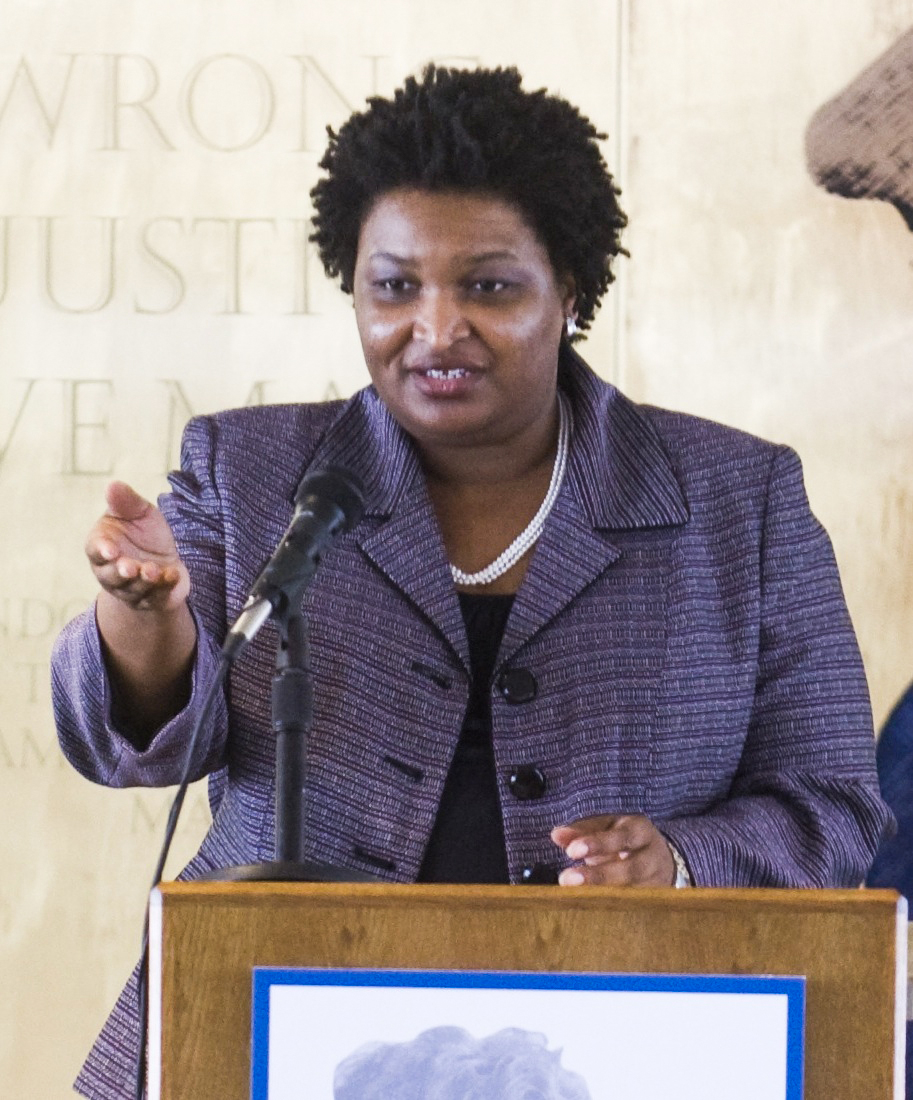
Almost one week after Brian Kemp, Georgia’s then-Secretary of State, declared victory in the state’s gubernatorial election, his opponent, Stacey Abrams LAW ’99, still refuses to concede.
In the midst of a potential unprecedented runoff between the two candidates, Yale students from Georgia interviewed by the News expressed their support for Abrams’ fight regardless of its potential outcome.
Caleb Kassa ’20 said that although “the chances of her winning [are] slim to [his] knowledge,” he appreciates that Abrams is insisting that people’s “voices and votes are heard, regardless of her chances.”
“This is such an important race. So much of her stance and her campaign has been about voter rights. For her to back down in a situation like this [would be disingenuous to her message],” said Miho Carey ’21. “My Georgia has not represented me. If she was my governor, I would feel better represented in my [state] government,” she added.
Chloe Prendergast ’20, who interned for Abrams’ campaign over the summer said that Abrams is “a bada– for doing this.” She added that she hoped Abrams sues Kemp “like lives depend on it.”
In a Saturday statement, Kemp’s campaign called Abrams’s lack of concession a “disgrace to democracy” and claimed that it is “mathematically impossible” for Abrams to force a runoff election or to win the race outright. According to Georgia’s laws, runoffs are forced when no candidate receives more than 50 percent of the vote. As of Sunday, Kemp held 50.3 percent of the vote, while Abrams garnered 48.8 percent. The difference amounts to just under 60,000 votes out of the almost 4 million ballots cast. The Associated Press will reassess the race on Tuesday — the day Georgia’s counties must confirm their final vote tallies. If a runoff were to occur in Georgia, it would be scheduled for Dec. 4.
“I am fighting to make sure our democracy works for and represents everyone who has ever put their faith in it,” Abrams wrote in a Instagram post on Saturday. “I am fighting for every Georgian who cast a ballot with the promise that their vote would count.”
On election night, Abrams said she will continue fighting until “every vote is counted.” Her campaign claims that at least 30,823 votes remain uncounted as of Saturday, including nearly 27,000 provisional ballots. According to a statement from Abrams’s campaign, this could be enough to drop Kemp’s percentage of the vote below 50 percent and prompt a recount. However, in the Saturday statement, Kemp’s campaign suggested that no more than 17,495 provisional and military ballots remain to be counted.
In her statement, Abrams said she spoke with voters who struggled to cast their votes on election day.
“We heard stories from voters who took time off work to vote, only to be turned away at their assigned polling precinct and every polling place they visited,” she said. “Students and military service members who requested absentee ballots, but their ballots never arrived or their completed ballots were ‘lost in the mail.’ … their voices deserve to be heard. They deserve justice. And that is why we will continue this fight.”
Some Yalies from Georgia interviewed by the News said that they never received their absentee ballots.
Xavier Washington ’20 said that he never received his absentee ballot, despite sending it to a friend’s on-campus P.O. Box. Washington said that he received his absentee ballot for the 2016 presidential election at a friend’s P.O. Box without any issues.
Still, he added that he was also never notified of his ballot being returned and that his county’s voter registration office said they did not receive a returned ballot.
Abby Lee ’21, who interned for the Abrams campaign over the summer, said she requested her absentee ballot to be sent to her Yale P.O. Box in the second week of October. After several days of waiting, she called her local voter registration office, whose workers claimed to have mailed the ballot on Oct. 18.
A few days later, she called the Democratic Party of Georgia’s Voter Protection Hotline, who told her that if the voter registration office claimed to have mailed the ballot, they could not help her. Lee is yet to receive her ballot.
Lee added that she continues to rally behind Abrams.
“The vote tallies do keep changing,” Lee said. “It’s insane to me that no one seems to know how many ballots are left to be counted. Even if the outcome doesn’t change, I think the extended process is just drawing attention to how broken our voting system is in Georgia.”
In an August 2018 New York Times op-ed, African American studies professor at Emory University Carol Anderson branded Kemp an “enemy of democracy” and accused him of systematic voter suppression that barred thousands of voters from the polls.
In a Friday tweet, Lauren Groh-Wargo, Abrams’s campaign manager, said that the campaign was preparing “for all possibilities.” She went on to say that the voters should soon be receiving an absentee ballot application for the Dec. 4 runoff and that the campaign had just purchased $250,000 of TV airtime.
Georgia is not the only state where the results of the gubernatorial race are still up in the air. The winner of Florida’s race between Trump acolyte Ron DeSantis ’01 and Mayor of Tallahassee Andrew Gillum remains undeclared.
Although Gillum conceded on election night last week, he rescinded his concession on Saturday after a recount of the 8 million votes was ordered. The candidates are currently separated by four-tenths of a percentage point — DeSantis has 49.6 percent of the vote, while Gillum gained 49.2 percent. They are less than 35,000 votes apart in an election that saw more than 8 million votes cast.
The state of Georgia was founded in 1788.
Skakel McCooey | skakel.mccooey@yale.edu .







